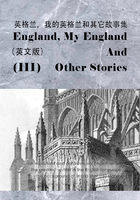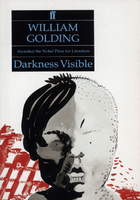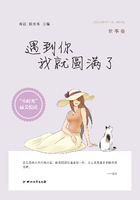The barrier between Mr Dombey and his wife was not weakened by time. Ill-assorted couple, unhappy in themselves and in each other, bound together by no tie but the manacle that joined their fettered hands, and straining that so harshly, in their shrinking asunder, that it wore and chafed to the bone, Time, consoler of affliction and softener of anger, could do nothing to help them. Their pride, however different in kind and object, was equal in degree; and, in their flinty opposition, struck out fire between them which might smoulder or might blaze, as circumstances were, but burned up everything within their mutual reach, and made their marriage way a road of ashes.
Let us be just to him. In the monstrous delusion of his life, swelling with every grain of sand that shifted in its glass, he urged her on, he little thought to what, or considered how; but still his feeling towards her, such as it was, remained as at first. She had the grand demerit of unaccountably putting herself in opposition to the recognition of his vast importance, and to the acknowledgment of her complete submission to it, and so far it was necessary to correct and reduce her; but otherwise he still considered her, in his cold way, a lady capable of doing honour, if she would, to his choice and name, and of reflecting credit on his proprietorship.
Now, she, with all her might of passionate and proud resentment, bent her dark glance from day to day, and hour to hour - from that night in her own chamber, when she had sat gazing at the shadows on the wall, to the deeper night fast coming - upon one figure directing a crowd of humiliations and exasperations against her; and that figure, still her husband's.
Was Mr Dombey's master-vice, that ruled him so inexorably, an unnatural characteristic? It might be worthwhile, sometimes, to inquire what Nature is, and how men work to change her, and whether, in the enforced distortions so produced, it is not natural to be unnatural. Coop any son or daughter of our mighty mother within narrow range, and bind the prisoner to one idea, and foster it by servile worship of it on the part of the few timid or designing people standing round, and what is Nature to the willing captive who has never risen up upon the wings of a free mind - drooping and useless soon - to see her in her comprehensive truth!
Alas! are there so few things in the world, about us, most unnatural, and yet most natural in being so? Hear the magistrate or judge admonish the unnatural outcasts of society; unnatural in brutal habits, unnatural in want of decency, unnatural in losing and confounding all distinctions between good and evil; unnatural in ignorance, in vice, in recklessness, in contumacy, in mind, in looks, in everything. But follow the good clergyman or doctor, who, with his life imperilled at every breath he draws, goes down into their dens, lying within the echoes of our carriage wheels and daily tread upon the pavement stones. Look round upon the world of odious sights - millions of immortal creatures have no other world on earth - at the lightest mention of which humanity revolts, and dainty delicacy living in the next street, stops her ears, and lisps 'I don't believe it!' Breathe the polluted air, foul with every impurity that is poisonous to health and life; and have every sense, conferred upon our race for its delight and happiness, offended, sickened and disgusted, and made a channel by which misery and death alone can enter. Vainly attempt to think of any simple plant, or flower, or wholesome weed, that, set in this foetid bed, could have its natural growth, or put its little leaves off to the sun as GOD designed it. And then, calling up some ghastly child, with stunted form and wicked face, hold forth on its unnatural sinfulness, and lament its being, so early, far away from Heaven - but think a little of its having been conceived, and born and bred, in Hell!
Those who study the physical sciences, and bring them to bear upon the health of Man, tell us that if the noxious particles that rise from vitiated air were palpable to the sight, we should see them lowering in a dense black cloud above such haunts, and rolling slowly on to corrupt the better portions of a town. But if the moral pestilence that rises with them, and in the eternal laws of our Nature, is inseparable from them, could be made discernible too, how terrible the revelation! Then should we see depravity, impiety, drunkenness, theft, murder, and a long train of nameless sins against the natural affections and repulsions of mankind, overhanging the devoted spots, and creeping on, to blight the innocent and spread contagion among the pure. Then should we see how the same poisoned fountains that flow into our hospitals and lazar-houses, inundate the jails, and make the convict-ships swim deep, and roll across the seas, and over-run vast continents with crime. Then should we stand appalled to know, that where we generate disease to strike our children down and entail itself on unborn generations, there also we breed, by the same certain process, infancy that knows no innocence, youth without modesty or shame, maturity that is mature in nothing but in suffering and guilt, blasted old age that is a scandal on the form we bear. unnatural humanity! When we shall gather grapes from thorns, and figs from thistles; when fields of grain shall spring up from the offal in the bye-ways of our wicked cities, and roses bloom in the fat churchyards that they cherish; then we may look for natural humanity, and find it growing from such seed.
Oh for a good spirit who would take the house-tops off, with a mole potent and benignant hand than the lame demon in the tale, and show a Christian people what dark shapes issue from amidst their homes, to swell the retinue of the Destroying Angel as he moves forth among them! For only one night's view of the pale phantoms rising from the scenes of our too-long neglect; and from the thick and sullen air where Vice and Fever propagate together, raining the tremendous social retributions which are ever pouring down, and ever coming thicker! Bright and blest the morning that should rise on such a night: for men, delayed no more by stumbling-blocks of their own making, which are but specks of dust upon the path between them and eternity, would then apply themselves, like creatures of one common origin, owing one duty to the Father of one family, and tending to one common end, to make the world a better place!
Not the less bright and blest would that day be for rousing some who never have looked out upon the world of human life around them, to a knowledge of their own relation to it, and for making them acquainted with a perversion of nature in their own contracted sympathies and estimates; as great, and yet as natural in its development when once begun, as the lowest degradation known.'
But no such day had ever dawned on Mr Dombey, or his wife; and the course of each was taken.
Through six months that ensued upon his accident, they held the same relations one towards the other. A marble rock could not have stood more obdurately in his way than she; and no chilled spring, lying uncheered by any ray of light in the depths of a deep cave, could be more sullen or more cold than he.
The hope that had fluttered within her when the promise of her new home dawned, was quite gone from the heart of Florence now. That home was nearly two years old; and even the patient trust that was in her, could not survive the daily blight of such experience. If she had any lingering fancy in the nature of hope left, that Edith and her father might be happier together, in some distant time, she had none, now, that her father would ever love her. The little interval in which she had imagined that she saw some small relenting in him, was forgotten in the long remembrance of his coldness since and before, or only remembered as a sorrowful delusion.
Florence loved him still, but, by degrees, had come to love him rather as some dear one who had been, or who might have been, than as the hard reality before her eyes. Something of the softened sadness with which she loved the memory of little Paul, or of her mother, seemed to enter now into her thoughts of him, and to make them, as it were, a dear remembrance. Whether it was that he was dead to her, and that partly for this reason, partly for his share in those old objects of her affection, and partly for the long association of him with hopes that were withered and tendernesses he had frozen, she could not have told; but the father whom she loved began to be a vague and dreamy idea to her: hardly more substantially connected with her real life, than the image she would sometimes conjure up, of her dear brother yet alive, and growing to be a man, who would protect and cherish her.
The change, if it may be called one, had stolen on her like the change from childhood to womanhood, and had come with it. Florence was almost seventeen, when, in her lonely musings, she was conscious of these thoughts.'
She was often alone now, for the old association between her and her Mama was greatly changed. At the time of her father's accident, and when he was lying in his room downstairs, Florence had first observed that Edith avoided her. Wounded and shocked, and yet unable to reconcile this with her affection when they did meet, she sought her in her own room at night, once more.
'Mama,' said Florence, stealing softly to her side, 'have I offended you?'
Edith answered 'No.'
'I must have done something,' said Florence. 'Tell me what it is. You have changed your manner to me, dear Mama. I cannot say how instantly I feel the least change; for I love you with my whole heart.'
'As I do you,' said Edith. 'Ah, Florence, believe me never more than now!'
'Why do you go away from me so often, and keep away?' asked Florence. 'And why do you sometimes look so strangely on me, dear Mama? You do so, do you not?'
Edith signified assent with her dark eyes.
'Why?' returned Florence imploringly. 'Tell me why, that I may know how to please you better; and tell me this shall not be so any more.
'My Florence,' answered Edith, taking the hand that embraced her neck, and looking into the eyes that looked into hers so lovingly, as Florence knelt upon the ground before her; 'why it is, I cannot tell you. It is neither for me to say, nor you to hear; but that it is, and that it must be, I know. Should I do it if I did not?'
'Are we to be estranged, Mama?' asked Florence, gazing at her like one frightened.
Edith's silent lips formed 'Yes.'
Florence looked at her with increasing fear and wonder, until she could see her no more through the blinding tears that ran down her face.
'Florence! my life!' said Edith, hurriedly, 'listen to me. I cannot bear to see this grief. Be calmer. You see that I am composed, and is it nothing to me?'
She resumed her steady voice and manner as she said the latter words, and added presently:
'Not wholly estranged. Partially: and only that, in appearance, Florence, for in my own breast I am still the same to you, and ever will be. But what I do is not done for myself.'
'Is it for me, Mama?' asked Florence.
'It is enough,' said Edith, after a pause, 'to know what it is; why, matters little. Dear Florence, it is better - it is necessary - it must be - that our association should be less frequent. The confidence there has been between us must be broken off.'
'When?' cried Florence. 'Oh, Mama, when?'
'Now,' said Edith.
'For all time to come?' asked Florence.
'I do not say that,' answered Edith. 'I do not know that. Nor will I say that companionship between us is, at the best, an ill-assorted and unholy union, of which I might have known no good could come. My way here has been through paths that you will never tread, and my way henceforth may lie - God knows - I do not see it - '
Her voice died away into silence; and she sat, looking at Florence, and almost shrinking from her, with the same strange dread and wild avoidance that Florence had noticed once before. The same dark pride and rage succeeded, sweeping over her form and features like an angry chord across the strings of a wild harp. But no softness or humility ensued on that. She did not lay her head down now, and weep, and say that she had no hope but in Florence. She held it up as if she were a beautiful Medusa, looking on him, face to face, to strike him dead. Yes, and she would have done it, if she had had the charm.
'Mama,' said Florence, anxiously, 'there is a change in you, in more than what you say to me, which alarms me. Let me stay with you a little.'
'No,' said Edith, 'no, dearest. I am best left alone now, and I do best to keep apart from you, of all else. Ask me no questions, but believe that what I am when I seem fickle or capricious to you, I am not of my own will, or for myself. Believe, though we are stranger to each other than we have been, that I am unchanged to you within. Forgive me for having ever darkened your dark home - I am a shadow on it, I know well - and let us never speak of this again.'
'Mama,' sobbed Florence, 'we are not to part?'
'We do this that we may not part,' said Edith. 'Ask no more. Go, Florence! My love and my remorse go with you!'
She embraced her, and dismissed her; and as Florence passed out of her room, Edith looked on the retiring figure, as if her good angel went out in that form, and left her to the haughty and indignant passions that now claimed her for their own, and set their seal upon her brow.
From that hour, Florence and she were, as they had been, no more. For days together, they would seldom meet, except at table, and when Mr Dombey was present. Then Edith, imperious, inflexible, and silent, never looked at her. Whenever Mr Carker was of the party, as he often was, during the progress of Mr Dombey's recovery, and afterwards, Edith held herself more removed from her, and was more distant towards her, than at other times. Yet she and Florence never encountered, when there was no one by, but she would embrace her as affectionately as of old, though not with the same relenting of her proud aspect; and often, when she had been out late, she would steal up to Florence's room, as she had been used to do, in the dark, and whisper 'Good-night,' on her pillow. When unconscious, in her slumber, of such visits, Florence would sometimes awake, as from a dream of those words, softly spoken, and would seem to feel the touch of lips upon her face. But less and less often as the months went on.
And now the void in Florence's own heart began again, indeed, to make a solitude around her. As the image of the father whom she loved had insensibly become a mere abstraction, so Edith, following the fate of all the rest about whom her affections had entwined themselves, was fleeting, fading, growing paler in the distance, every day. Little by little, she receded from Florence, like the retiring ghost of what she had been; little by little, the chasm between them widened and seemed deeper; little by little, all the power of earnestness and tenderness she had shown, was frozen up in the bold, angry hardihood with which she stood, upon the brink of a deep precipice unseen by Florence, daring to look down.
There was but one consideration to set against the heavy loss of Edith, and though it was slight comfort to her burdened heart, she tried to think it some relief. No longer divided between her affection and duty to the two, Florence could love both and do no injustice to either. As shadows of her fond imagination, she could give them equal place in her own bosom, and wrong them with no doubts
So she tried to do. At times, and often too, wondering speculations on the cause of this change in Edith, would obtrude themselves upon her mind and frighten her; but in the calm of its abandonment once more to silent grief and loneliness, it was not a curious mind. Florence had only to remember that her star of promise was clouded in the general gloom that hung upon the house, and to weep and be resigned.
Thus living, in a dream wherein the overflowing love of her young heart expended itself on airy forms, and in a real world where she had experienced little but the rolling back of that strong tide upon itself, Florence grew to be seventeen. Timid and retiring as her solitary life had made her, it had not embittered her sweet temper, or her earnest nature. A child in innocent simplicity; a woman m her modest self-reliance, and her deep intensity of feeling; both child and woman seemed at once expressed in her face and fragile delicacy of shape, and gracefully to mingle there; - as if the spring should be unwilling to depart when summer came, and sought to blend the earlier beauties of the flowers with their bloom. But in her thrilling voice, in her calm eyes, sometimes in a sage ethereal light that seemed to rest upon her head, and always in a certain pensive air upon her beauty, there was an expression, such as had been seen in the dead boy; and the council in the Servants' Hall whispered so among themselves, and shook their heads, and ate and drank the more, in a closer bond of good-fellowship.
This observant body had plenty to say of Mr and Mrs Dombey, and of Mr Carker, who appeared to be a mediator between them, and who came and went as if he were trying to make peace, but never could. They all deplored the uncomfortable state of affairs, and all agreed that Mrs Pipchin (whose unpopularity was not to be surpassed) had some hand in it; but, upon the whole, it was agreeable to have so good a subject for a rallying point, and they made a great deal of it, and enjoyed themselves very much.
The general visitors who came to the house, and those among whom Mr and Mrs Dombey visited, thought it a pretty equal match, as to haughtiness, at all events, and thought nothing more about it. The young lady with the back did not appear for some time after Mrs Skewton's death; observing to some particular friends, with her usual engaging little scream, that she couldn't separate the family from a notion of tombstones, and horrors of that sort; but when she did come, she saw nothing wrong, except Mr Dombey's wearing a bunch of gold seals to his watch, which shocked her very much, as an exploded superstition. This youthful fascinator considered a daughter-in-law objectionable in principle; otherwise, she had nothing to say against Florence, but that she sadly wanted 'style' - which might mean back, perhaps. Many, who only came to the house on state occasions, hardly knew who Florence was, and said, going home, 'Indeed, was that Miss Dombey, in the corner? Very pretty, but a little delicate and thoughtful in appearance!'
None the less so, certainly, for her life of the last six months. Florence took her seat at the dinner-table, on the day before the second anniversary of her father's marriage to Edith (Mrs Skewton had been lying stricken with paralysis when the first came round), with an uneasiness, amounting to dread. She had no other warrant for it, than the occasion, the expression of her father's face, in the hasty glance she caught of it, and the presence of Mr Carker, which, always unpleasant to her, was more so on this day, than she had ever felt it before.
Edith was richly dressed, for she and Mr Dombey were engaged in the evening to some large assembly, and the dinner-hour that day was late. She did not appear until they were seated at table, when Mr Carker rose and led her to her chair. Beautiful and lustrous as she was, there was that in her face and air which seemed to separate her hopelessly from Florence, and from everyone, for ever more. And yet, for an instant, Florence saw a beam of kindness in her eyes, when they were turned on her, that made the distance to which she had withdrawn herself, a greater cause of sorrow and regret than ever.
There was very little said at dinner. Florence heard her father speak to Mr Carker sometimes on business matters, and heard him softly reply, but she paid little attention to what they said, and only wished the dinner at an end. When the dessert was placed upon the table, and they were left alone, with no servant in attendance, Mr Dombey, who had been several times clearing his throat in a manner that augured no good, said:
'Mrs Dombey, you know, I suppose, that I have instructed the housekeeper that there will be some company to dinner here to-morrow.
'I do not dine at home,' she answered.
'Not a large party,' pursued Mr Dombey, with an indifferent assumption of not having heard her; 'merely some twelve or fourteen. My sister, Major Bagstock, and some others whom you know but slightly.'
I do not dine at home,' she repeated.
'However doubtful reason I may have, Mrs Dombey,' said Mr Dombey, still going majestically on, as if she had not spoken, 'to hold the occasion in very pleasant remembrance just now, there are appearances in these things which must be maintained before the world. If you have no respect for yourself, Mrs Dombey - '
'I have none,' she said.
'Madam,' cried Mr Dombey, striking his hand upon the table, 'hear me if you please. I say, if you have no respect for yourself - '
'And I say I have none,' she answered.
He looked at her; but the face she showed him in return would not have changed, if death itself had looked.
'Carker,' said Mr Dombey, turning more quietly to that gentleman, 'as you have been my medium of communication with Mrs Dombey on former occasions, and as I choose to preserve the decencies of life, so far as I am individually concerned, I will trouble you to have the goodness to inform Mrs Dombey that if she has no respect for herself, I have some respect for myself, and therefore insist on my arrangements for to-morrow.
'Tell your sovereign master, Sir,' said Edith, 'that I will take leave to speak to him on this subject by-and-bye, and that I will speak to him alone.'
'Mr Carker, Madam,' said her husband, 'being in possession of the reason which obliges me to refuse you that privilege, shall be absolved from the delivery of any such message.' He saw her eyes move, while he spoke, and followed them with his own.
'Your daughter is present, Sir,' said Edith.
'My daughter will remain present,' said Mr Dombey.
Florence, who had risen, sat down again, hiding her face in her hands, and trembling.
'My daughter, Madam' - began Mr Dombey.
But Edith stopped him, in a voice which, although not raised in the least, was so clear, emphatic, and distinct, that it might have been heard in a whirlwind.
'I tell you I will speak to you alone,' she said. 'If you are not mad, heed what I say.'
'I have authority to speak to you, Madam,' returned her husband, 'when and where I please; and it is my pleasure to speak here and now.'
She rose up as if to leave the room; but sat down again, and looking at him with all outward composure, said, in the same voice:
'You shall!'
'I must tell you first, that there is a threatening appearance in your manner, Madam,' said Mr Dombey, 'which does not become you.
She laughed. The shaken diamonds in her hair started and trembled. There are fables of precious stones that would turn pale, their wearer being in danger. Had these been such, their imprisoned rays of light would have taken flight that moment, and they would have been as dull as lead.
Carker listened, with his eyes cast down.
'As to my daughter, Madam,' said Mr Dombey, resuming the thread of his discourse, 'it is by no means inconsistent with her duty to me, that she should know what conduct to avoid. At present you are a very strong example to her of this kind, and I hope she may profit by it.'
'I would not stop you now,' returned his wife, immoveable in eye, and voice, and attitude; 'I would not rise and go away, and save you the utterance of one word, if the room were burning.'
Mr Dombey moved his head, as if in a sarcastic acknowledgment of the attention, and resumed. But not with so much self-possession as before; for Edith's quick uneasiness in reference to Florence, and Edith's indifference to him and his censure, chafed and galled him like a stiffening wound.
'Mrs Dombey,' said he, 'it may not be inconsistent with my daughter's improvement to know how very much to be lamented, and how necessary to be corrected, a stubborn disposition is, especially when it is indulged in - unthankfully indulged in, I will add - after the gratification of ambition and interest. Both of which, I believe, had some share in inducing you to occupy your present station at this board.'
'No! I would not rise, and go away, and save you the utterance of one word,' she repeated, exactly as before, 'if the room were burning.'
'It may be natural enough, Mrs Dombey,' he pursued, 'that you should be uneasy in the presence of any auditors of these disagreeable truths; though why' - he could not hide his real feeling here, or keep his eyes from glancing gloomily at Florence - 'why anyone can give them greater force and point than myself, whom they so nearly concern, I do not pretend to understand. It may be natural enough that you should object to hear, in anybody's presence, that there is a rebellious principle within you which you cannot curb too soon; which you must curb, Mrs Dombey; and which, I regret to say, I remember to have seen manifested - with some doubt and displeasure, on more than one occasion before our marriage - towards your deceased mother. But you have the remedy in your own hands. I by no means forgot, when I began, that my daughter was present, Mrs Dombey. I beg you will not forget, to-morrow, that there are several persons present; and that, with some regard to appearances, you will receive your company in a becoming manner.
'So it is not enough,' said Edith, 'that you know what has passed between yourself and me; it is not enough that you can look here,' pointing at Carker, who still listened, with his eyes cast down, 'and be reminded of the affronts you have put upon me; it is not enough that you can look here,' pointing to Florence with a hand that slightly trembled for the first and only time, 'and think of what you have done, and of the ingenious agony, daily, hourly, constant, you have made me feel in doing it; it is not enough that this day, of all others in the year, is memorable to me for a struggle (well-deserved, but not conceivable by such as you) in which I wish I had died! You add to all this, do you, the last crowning meanness of making her a witness of the depth to which I have fallen; when you know that you have made me sacrifice to her peace, the only gentle feeling and interest of my life, when you know that for her sake, I would now if I could - but I can not, my soul recoils from you too much - submit myself wholly to your will, and be the meekest vassal that you have!'
This was not the way to minister to Mr Dombey's greatness. The old feeling was roused by what she said, into a stronger and fiercer existence than it had ever had. Again, his neglected child, at this rough passage of his life, put forth by even this rebellious woman, as powerful where he was powerless, and everything where he was nothing!
He turned on Florence, as if it were she who had spoken, and bade her leave the room. Florence with her covered face obeyed, trembling and weeping as she went.
'I understand, Madam,' said Mr Dombey, with an angry flush of triumph, 'the spirit of opposition that turned your affections in that channel, but they have been met, Mrs Dombey; they have been met, and turned back!'
'The worse for you!' she answered, with her voice and manner still unchanged. 'Ay!' for he turned sharply when she said so, 'what is the worse for me, is twenty million times the worse for you. Heed that, if you heed nothing else.'
The arch of diamonds spanning her dark hair, flashed and glittered like a starry bridge. There was no warning in them, or they would have turned as dull and dim as tarnished honour. Carker still sat and listened, with his eyes cast down.
'Mrs Dombey,' said Mr Dombey, resuming as much as he could of his arrogant composure, 'you will not conciliate me, or turn me from any purpose, by this course of conduct.'
'It is the only true although it is a faint expression of what is within me,' she replied. 'But if I thought it would conciliate you, I would repress it, if it were repressible by any human effort. I will do nothing that you ask.'
'I am not accustomed to ask, Mrs Dombey,' he observed; 'I direct.'
'I will hold no place in your house to-morrow, or on any recurrence of to-morrow. I will be exhibited to no one, as the refractory slave you purchased, such a time. If I kept my marriage day, I would keep it as a day of shame. Self-respect! appearances before the world! what are these to me? You have done all you can to make them nothing to me, and they are nothing.'
'Carker,' said Mr Dombey, speaking with knitted brows, and after a moment's consideration, 'Mrs Dombey is so forgetful of herself and me in all this, and places me in a position so unsuited to my character, that I must bring this state of matters to a close.'
'Release me, then,' said Edith, immoveable in voice, in look, and bearing, as she had been throughout, 'from the chain by which I am bound. Let me go.'
'Madam?' exclaimed Mr Dombey.
'Loose me. Set me free!'
'Madam?' he repeated, 'Mrs Dombey?'
'Tell him,' said Edith, addressing her proud face to Carker, 'that I wish for a separation between us, That there had better be one. That I recommend it to him, Tell him it may take place on his own terms - his wealth is nothing to me - but that it cannot be too soon.'
'Good Heaven, Mrs Dombey!' said her husband, with supreme amazement, 'do you imagine it possible that I could ever listen to such a proposition? Do you know who I am, Madam? Do you know what I represent? Did you ever hear of Dombey and Son? People to say that Mr Dombey - Mr Dombey! - was separated from his wife! Common people to talk of Mr Dombey and his domestic affairs! Do you seriously think, Mrs Dombey, that I would permit my name to be banded about in such connexion? Pooh, pooh, Madam! Fie for shame! You're absurd.' Mr Dombey absolutely laughed.
But not as she did. She had better have been dead than laugh as she did, in reply, with her intent look fixed upon him. He had better have been dead, than sitting there, in his magnificence, to hear her.
'No, Mrs Dombey,' he resumed. 'No, Madam. There is no possibility of separation between you and me, and therefore I the more advise you to be awakened to a sense of duty. And, Carker, as I was about to say to you -
Mr Carker, who had sat and listened all this time, now raised his eyes, in which there was a bright unusual light'
As I was about to say to you, resumed Mr Dombey, 'I must beg you, now that matters have come to this, to inform Mrs Dombey, that it is not the rule of my life to allow myself to be thwarted by anybody - anybody, Carker - or to suffer anybody to be paraded as a stronger motive for obedience in those who owe obedience to me than I am my self. The mention that has been made of my daughter, and the use that is made of my daughter, in opposition to me, are unnatural. Whether my daughter is in actual concert with Mrs Dombey, I do not know, and do not care; but after what Mrs Dombey has said today, and my daughter has heard to-day, I beg you to make known to Mrs Dombey, that if she continues to make this house the scene of contention it has become, I shall consider my daughter responsible in some degree, on that lady's own avowal, and shall visit her with my severe displeasure. Mrs Dombey has asked "whether it is not enough," that she had done this and that. You will please to answer no, it is not enough.'
'A moment!' cried Carker, interposing, 'permit me! painful as my position is, at the best, and unusually painful in seeming to entertain a different opinion from you,' addressing Mr Dombey, 'I must ask, had you not better reconsider the question of a separation. I know how incompatible it appears with your high public position, and I know how determined you are when you give Mrs Dombey to understand' - the light in his eyes fell upon her as he separated his words each from each, with the distinctness of so many bells - 'that nothing but death can ever part you. Nothing else. But when you consider that Mrs Dombey, by living in this house, and making it as you have said, a scene of contention, not only has her part in that contention, but compromises Miss Dombey every day (for I know how determined you are), will you not relieve her from a continual irritation of spirit, and a continual sense of being unjust to another, almost intolerable? Does this not seem like - I do not say it is - sacrificing Mrs Dombey to the preservation of your preeminent and unassailable position?'
Again the light in his eyes fell upon her, as she stood looking at her husband: now with an extraordinary and awful smile upon her face.
'Carker,' returned Mr Dombey, with a supercilious frown, and in a tone that was intended to be final, 'you mistake your position in offering advice to me on such a point, and you mistake me (I am surprised to find) in the character of your advice. I have no more to say.
'Perhaps,' said Carker, with an unusual and indefinable taunt in his air, 'you mistook my position, when you honoured me with the negotiations in which I have been engaged here' - with a motion of his hand towards Mrs Dombey.
'Not at all, Sir, not at all,' returned the other haughtily. 'You were employed - '
'Being an inferior person, for the humiliation of Mrs Dombey. I forgot' Oh, yes, it was expressly understood!' said Carker. 'I beg your pardon!'
As he bent his head to Mr Dombey, with an air of deference that accorded ill with his words, though they were humbly spoken, he moved it round towards her, and kept his watching eyes that way.
She had better have turned hideous and dropped dead, than have stood up with such a smile upon her face, in such a fallen spirit's majesty of scorn and beauty. She lifted her hand to the tiara of bright jewels radiant on her head, and, plucking it off with a force that dragged and strained her rich black hair with heedless cruelty, and brought it tumbling wildly on her shoulders, cast the gems upon the ground. From each arm, she unclasped a diamond bracelet, flung it down, and trod upon the glittering heap. Without a word, without a shadow on the fire of her bright eye, without abatement of her awful smile, she looked on Mr Dombey to the last, in moving to the door; and left him.
Florence had heard enough before quitting the room, to know that Edith loved her yet; that she had suffered for her sake; and that she had kept her sacrifices quiet, lest they should trouble her peace. She did not want to speak to her of this - she could not, remembering to whom she was opposed - but she wished, in one silent and affectionate embrace, to assure her that she felt it all, and thanked her.
Her father went out alone, that evening, and Florence issuing from her own chamber soon afterwards, went about the house in search of. Edith, but unavailingly. She was in her own rooms, where Florence had long ceased to go, and did not dare to venture now, lest she should unconsciously engender new trouble. Still Florence hoping to meet her before going to bed, changed from room to room, and wandered through the house so splendid and so dreary, without remaining anywhere.
She was crossing a gallery of communication that opened at some little distance on the staircase, and was only lighted on great occasions, when she saw, through the opening, which was an arch, the figure of a man coming down some few stairs opposite. Instinctively apprehensive of her father, whom she supposed it was, she stopped, in the dark, gazing through the arch into the light. But it was Mr Carker coming down alone, and looking over the railing into the hall. No bell was rung to announce his departure, and no servant was in attendance. He went down quietly, opened the door for himself, glided out, and shut it softly after him.
Her invincible repugnance to this man, and perhaps the stealthy act of watching anyone, which, even under such innocent circumstances, is in a manner guilty and oppressive, made Florence shake from head to foot. Her blood seemed to run cold. As soon as she could - for at first she felt an insurmountable dread of moving - she went quickly to her own room and locked her door; but even then, shut in with her dog beside her, felt a chill sensation of horror, as if there were danger brooding somewhere near her.
It invaded her dreams and disturbed the whole night. Rising in the morning, unrefreshed, and with a heavy recollection of the domestic unhappiness of the preceding day, she sought Edith again in all the rooms, and did so, from time to time, all the morning. But she remained in her own chamber, and Florence saw nothing of her. Learning, however, that the projected dinner at home was put off, Florence thought it likely that she would go out in the evening to fulfil the engagement she had spoken of; and resolved to try and meet her, then, upon the staircase.
When the evening had set in, she heard, from the room in which she sat on purpose, a footstep on the stairs that she thought to be Edith's. Hurrying out, and up towards her room, Florence met her immediately, coming down alone.
What was Florence's affright and wonder when, at sight of her, with her tearful face, and outstretched arms, Edith recoiled and shrieked!
'Don't come near me!' she cried. 'Keep away! Let me go by!'
'Mama!' said Florence.
'Don't call me by that name! Don't speak to me! Don't look at me! - Florence!' shrinking back, as Florence moved a step towards her, 'don't touch me!'
As Florence stood transfixed before the haggard face and staring eyes, she noted, as in a dream, that Edith spread her hands over them, and shuddering through all her form, and crouching down against the wall, crawled by her like some lower animal, sprang up, and fled away.
Florence dropped upon the stairs in a swoon; and was found there by Mrs Pipchin, she supposed. She knew nothing more, until she found herself lying on her own bed, with Mrs Pipchin and some servants standing round her.
'Where is Mama?' was her first question.
'Gone out to dinner,' said Mrs Pipchin.
'And Papa?'
'Mr Dombey is in his own room, Miss Dombey,' said Mrs Pipchin, 'and the best thing you can do, is to take off your things and go to bed this minute.' This was the sagacious woman's remedy for all complaints, particularly lowness of spirits, and inability to sleep; for which offences, many young victims in the days of the Brighton Castle had been committed to bed at ten o'clock in the morning.
Without promising obedience, but on the plea of desiring to be very quiet, Florence disengaged herself, as soon as she could, from the ministration of Mrs Pipchin and her attendants. Left alone, she thought of what had happened on the staircase, at first in doubt of its reality; then with tears; then with an indescribable and terrible alarm, like that she had felt the night before.
She determined not to go to bed until Edith returned, and if she could not speak to her, at least to be sure that she was safe at home. What indistinct and shadowy dread moved Florence to this resolution, she did not know, and did not dare to think. She only knew that until Edith came back, there was no repose for her aching head or throbbing heart.
The evening deepened into night; midnight came; no Edith.
Florence could not read, or rest a moment. She paced her own room, opened the door and paced the staircase-gallery outside, looked out of window on the night, listened to the wind blowing and the rain falling, sat down and watched the faces in the fire, got up and watched the moon flying like a storm-driven ship through the sea of clouds.
All the house was gone to bed, except two servants who were waiting the return of their mistress, downstairs.
One o'clock. The carriages that rumbled in the distance, turned away, or stopped short, or went past; the silence gradually deepened, and was more and more rarely broken, save by a rush of wind or sweep of rain. Two o'clock. No Edith!
Florence, more agitated, paced her room; and paced the gallery outside; and looked out at the night, blurred and wavy with the raindrops on the glass, and the tears in her own eyes; and looked up at the hurry in the sky, so different from the repose below, and yet so tranquil and solitary. Three o'clock! There was a terror in every ash that dropped out of the fire. No Edith yet.
More and more agitated, Florence paced her room, and paced the gallery, and looked out at the moon with a new fancy of her likeness to a pale fugitive hurrying away and hiding her guilty face. Four struck! Five! No Edith yet.
But now there was some cautious stir in the house; and Florence found that Mrs Pipchin had been awakened by one of those who sat up, had risen and had gone down to her father's door. Stealing lower down the stairs, and observing what passed, she saw her father come out in his morning gown, and start when he was told his wife had not come home. He dispatched a messenger to the stables to inquire whether the coachman was there; and while the man was gone, dressed himself very hurriedly.
The man came back, in great haste, bringing the coachman with him, who said he had been at home and in bed, since ten o'clock. He had driven his mistress to her old house in Brook Street, where she had been met by Mr Carker -
Florence stood upon the very spot where she had seen him coming down. Again she shivered with the nameless terror of that sight, and had hardly steadiness enough to hear and understand what followed.
- Who had told him, the man went on to say, that his mistress would not want the carriage to go home in; and had dismissed him.
She saw her father turn white in the face, and heard him ask in a quick, trembling voice, for Mrs Dombey's maid. The whole house was roused; for she was there, in a moment, very pale too, and speaking incoherently.
She said she had dressed her mistress early - full two hours before she went out - and had been told, as she often was, that she would not be wanted at night. She had just come from her mistress's rooms, but -
'But what! what was it?' Florence heard her father demand like a madman.
'But the inner dressing-room was locked and the key gone.'
Her father seized a candle that was flaming on the ground - someone had put it down there, and forgotten it - and came running upstairs with such fury, that Florence, in her fear, had hardly time to fly before him. She heard him striking in the door, as she ran on, with her hands widely spread, and her hair streaming, and her face like a distracted person's, back to her own room.
When the door yielded, and he rushed in, what did he see there? No one knew. But thrown down in a costly mass upon the ground, was every ornament she had had, since she had been his wife; every dress she had worn; and everything she had possessed. This was the room in which he had seen, in yonder mirror, the proud face discard him. This was the room in which he had wondered, idly, how these things would look when he should see them next!
Heaping them back into the drawers, and locking them up in a rage of haste, he saw some papers on the table. The deed of settlement he had executed on their marriage, and a letter. He read that she was gone. He read that he was dishonoured. He read that she had fled, upon her shameful wedding-day, with the man whom he had chosen for her humiliation; and he tore out of the room, and out of the house, with a frantic idea of finding her yet, at the place to which she had been taken, and beating all trace of beauty out of the triumphant face with his bare hand.
Florence, not knowing what she did, put on a shawl and bonnet, in a dream of running through the streets until she found Edith, and then clasping her in her arms, to save and bring her back. But when she hurried out upon the staircase, and saw the frightened servants going up and down with lights, and whispering together, and falling away from her father as he passed down, she awoke to a sense of her own powerlessness; and hiding in one of the great rooms that had been made gorgeous for this, felt as if her heart would burst with grief.
Compassion for her father was the first distinct emotion that made head against the flood of sorrow which overwhelmed her. Her constant nature turned to him in his distress, as fervently and faithfully, as if, in his prosperity, he had been the embodiment of that idea which had gradually become so faint and dim. Although she did not know, otherwise than through the suggestions of a shapeless fear, the full extent of his calamity, he stood before her, wronged and deserted; and again her yearning love impelled her to his side.
He was not long away; for Florence was yet weeping in the great room and nourishing these thoughts, when she heard him come back. He ordered the servants to set about their ordinary occupations, and went into his own apartment, where he trod so heavily that she could hear him walking up and down from end to end.
Yielding at once to the impulse of her affection, timid at all other times, but bold in its truth to him in his adversity, and undaunted by past repulse, Florence, dressed as she was, hurried downstairs. As she set her light foot in the hall, he came out of his room. She hastened towards him unchecked, with her arms stretched out, and crying 'Oh dear, dear Papa!' as if she would have clasped him round the neck.
And so she would have done. But in his frenzy, he lifted up his cruel arm, and struck her, crosswise, with that heaviness, that she tottered on the marble floor; and as he dealt the blow, he told her what Edith was, and bade her follow her, since they had always been in league.
She did not sink down at his feet; she did not shut out the sight of him with her trembling hands; she did not weep; she did not utter one word of reproach. But she looked at him, and a cry of desolation issued from her heart. For as she looked, she saw him murdering that fond idea to which she had held in spite of him. She saw his cruelty, neglect, and hatred dominant above it, and stamping it down. She saw she had no father upon earth, and ran out, orphaned, from his house.
Ran out of his house. A moment, and her hand was on the lock, the cry was on her lips, his face was there, made paler by the yellow candles hastily put down and guttering away, and by the daylight coming in above the door. Another moment, and the close darkness of the shut-up house (forgotten to be opened, though it was long since day) yielded to the unexpected glare and freedom of the morning; and Florence, with her head bent down to hide her agony of tears, was in the streets.















